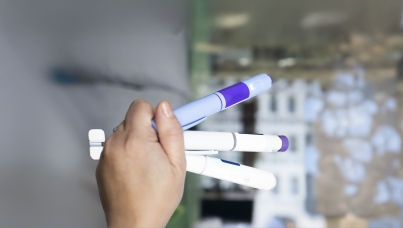Nutrition in a pill: Europeans’ attitudes towards food supplements
Ever since the Covid-19 pandemic first hit in March 2020, images of people passing near-empty or empty shelves at groceries and drug stores, a shared attitude for panic buying and booming sales data have become a recurring phenomenon across the globe and Europe. While grocery shoppers slowly adjusted to the “new normal” of lockdowns, Ipsos findings confirmed how, even in the face of war and spiking inflation, Covid-19 endured among the top 10 consumer concerns over the past two years.
In the (post-)lockdown world, consumers have increasingly turned to self-care and digital, personalized medicine to monitor their own health data and gain more control over their health and immunity. As the consumers’ attention and concern for personal health and immunity rocketed over the past three years, so did sales in the pharmaceutical and food supplement sectors
Vitamins and food supplements as an immunity booster against the virus
Commenting on the rising star of food supplements and vitamins in the (post-)pandemic world, an analyst from Barclays pointed out to the Financial Times that the pandemic served as “an accelerator” of the millennials and the Generation Z’s interest in health and wellness, changing behaviours and transforming food supplements into an integral part of consumers’ daily routine. Confirming this renewed emphasis on self-care and immunity around the globe, Ipsos US research conducted in 2020 for the Council of Responsible Nutrition showed how 85% of Americans reported that the that Covid-19 pandemic served as a reminder to take care of their overall health and 91% of American supplement users changed supplement regimen during Covid-19.
Two years into the pandemic, has the increasing consumption of food supplements and vitamins truly become an enduring trend in Europe too?
Supplements’ consumption more popular than ever in Europe
Recent research conducted by Ipsos European Public Affairs confirmed that regularly using vitamins and food supplements as an immunity booster or as a self-care tool is a prevalent trend in Europe. Ipsos European Public Affairs conducted a survey in 2022 on behalf of Food Supplements Europe in 14 EU Member States and discovered that almost 9 in 10 European consumers had taken food supplements in their lives and nearly all of them had done so in the past 12 months (93%). Most commonly, consumers reported having taken Vitamin D, Vitamin C, and magnesium over the last 12 months.
Much in line with an enduring focus on health and immunity among consumers around the globe, this research showed how over half of the surveyed consumers in the EU had taken supplements to maintain their overall health, while approaching half of them had done so to maintain their immune system. To add on this, more than two-thirds of European consumers mentioned that either a medical doctor/healthcare professional or a pharmacist were their main sources of information on food supplements, reflecting an increased interest in, and trust towards, the healthcare sector and healthcare professionals around the world.
Even among the very few European consumers who had never taken supplements or vitamins in the past (one in ten consumers), almost half of them (46%) mentioned that a doctor’s or healthcare professional’s recommendation to take supplements would make them reconsider doing so in the future.
About the study
This survey was conducted between 17 and 30 March 2022, in 14 EU Member States: Belgium, Czechia, Denmark, Germany, Spain, France, Italy, Cyprus, the Netherlands, Poland, Romania, Slovenia, Finland and Sweden. In each country, the target population was adults aged 18 and over with purchasing power, and the target sample size was 1,000 – apart from in Cyprus where the target was 200. In total, 13,249 interviews were completed across the 14 countries.



